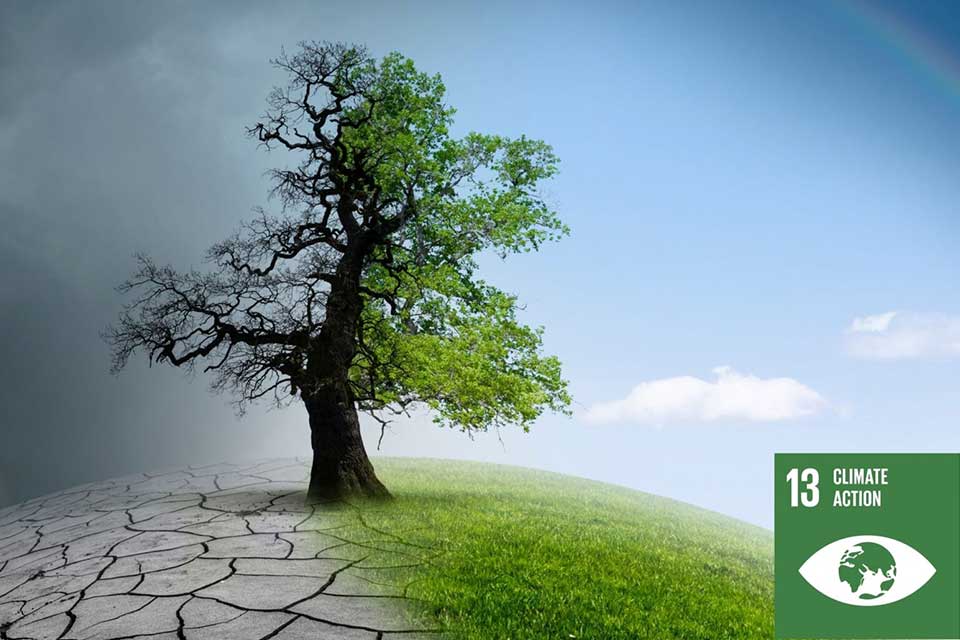Leading the Change: Bangladesh at the Forefront of Climate Action
As we look ahead to 2050, our generation stands at a pivotal moment, not just as the future leaders and innovators of the world, but as the guardians of the planet. In Bangladesh, we understand the urgency of climate change perhaps more than many others. Our nation, with its low-lying coastal regions, is already seeing the effects of rising sea levels, intense storms, and shifting weather patterns. The question is: what are we prepared to do about it?
While the challenges of climate change are global, the solutions can be local, driven by communities like ours. What makes us different is that we don’t have the luxury of waiting—Bangladesh is on the frontlines. But with this challenge comes the unique opportunity to lead.
Here’s where we can make a real difference:
1. Mangrove Reforestation as a Natural Defense: Bangladesh has the largest mangrove forest in the world, the Sundarbans, a crucial buffer against coastal erosion and rising seas. One way we can combat climate change is by spearheading mangrove reforestation efforts. Mangroves not only absorb more carbon than other types of trees, but they also protect our coasts and provide habitats for diverse wildlife. By expanding these forests, we’re creating natural shields for our country while contributing to global carbon reduction.
2. Solar-Powered Villages: Harnessing Clean Energy: Bangladesh is a tropical country blessed with sunlight for much of the year. We should tap into this renewable energy by turning our rural communities into solar-powered hubs. Imagine entire villages powered by solar energy—reducing our dependence on fossil fuels and creating sustainable livelihoods in the process. This can be a model for other developing nations to follow.
3. Climate Education in Every School: To truly create lasting change, we need to start from the roots. Incorporating climate education into every school curriculum is a critical step. If every child in Bangladesh learns about sustainability, environmental protection, and climate action from an early age, we can raise a generation that will naturally make eco-friendly choices. They will be the driving force behind the green future we envision.
4. Community-Led Innovation for Waste Management: Waste is a growing problem in Bangladesh, especially in urban areas. Instead of waiting for top-down solutions, we can empower communities to innovate. Whether it’s waste-to-energy projects or localized recycling systems, the power of grassroots efforts can transform our cities into cleaner, more sustainable places. Bangladesh can become a beacon for innovative, community-driven solutions to waste management.
5. Advocating for Climate Justice: Climate change isn’t just an environmental issue; it’s a justice issue. The poorest and most vulnerable in our country are often hit hardest by the impacts of climate change. By speaking up for climate justice, we can ensure that our policies prioritize those who are most at risk. Bangladesh can become a global advocate for equity in climate action, ensuring that the voices of the marginalized are heard.
6. Floating Gardens for Flood-Resilient Agriculture: Implementing floating gardens, known as “Baira,” in flood-prone areas, enabling sustainable food production despite rising water levels.
7. Biodegradable Packaging Initiatives: Promoting the use of jute-based biodegradable packaging, reducing plastic pollution while supporting Bangladesh’s jute industry.
8. Climate-Resilient Urban Planning: Designing cities that incorporate green spaces, rainwater harvesting systems, and climate-resilient infrastructure to withstand extreme weather.
9. Zero-Waste Markets: Establishing local zero-waste markets where reusable packaging is mandatory, encouraging sustainable consumption and reducing landfill waste.
10. Harnessing Indigenous Knowledge for Climate Solutions: Tapping into the traditional knowledge of indigenous communities in Bangladesh to develop climate-resilient agricultural and water management practices.
11. Youth-Led Environmental Entrepreneurship: Encouraging young entrepreneurs to develop eco-friendly products and services, creating a green economy driven by innovation and sustainability.
12. Eco-Tourism Development: Expanding eco-tourism initiatives in Bangladesh, with a focus on protecting natural resources while providing sustainable livelihoods for local communities.
A Call to Action for a Green Future:
What sets us apart as a nation is our resilience and determination. Bangladesh has always faced its challenges head-on, and climate change is no different. But what will make us truly unique is our commitment to being proactive, not reactive. It’s not just about planting trees or reducing plastic—it’s about building a movement that influences how we live, how we consume, and how we protect the planet for future generations.
As we lead this charge, our actions will ripple beyond our borders. The world is watching, and Bangladesh can be a shining example of how even the most vulnerable nations can rise up and lead the fight against climate change. Together, we have the power to build a future where our planet thrives, and it starts with us.







